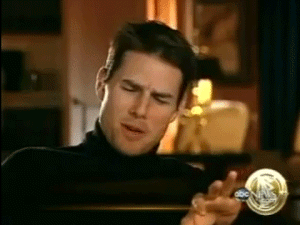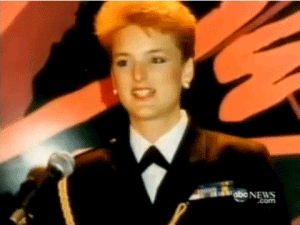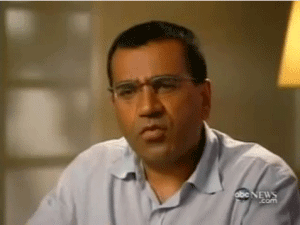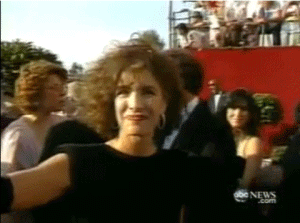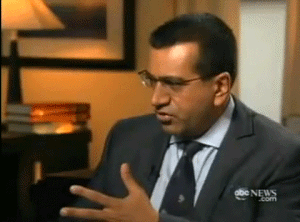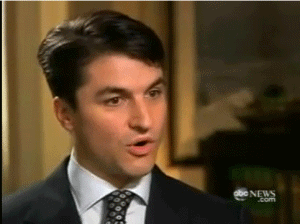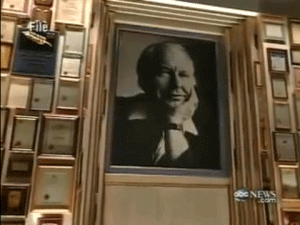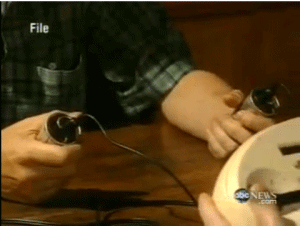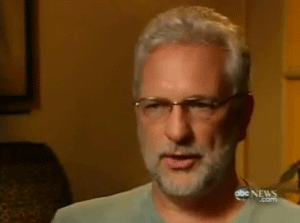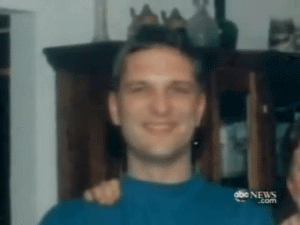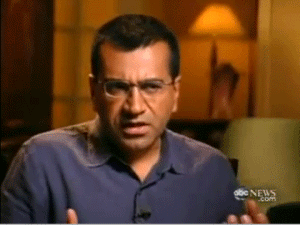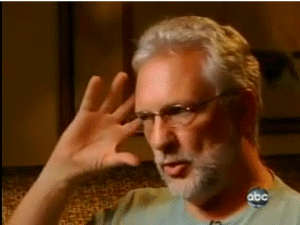|
ABC NIGHTLINE: INSIDE SCIENTOLOGY -- ILLUSTRATED INTERVIEW |
|
[Martin Bashir] This is Cruise in a video made for a Scientology event that was leaked onto the Internet last year. [Tom Cruise] There's nothing part of the way for me. It's just "Kkkuhhh!" [Martin Bashir] Tom Cruise first burst onto the scene in a pair of white socks and not much else in "Risky Business." Then he was a fighter pilot -- a bartender -- and by the time he uttered those now immortal words in "Jerry Maguire," "You complete me" -- he had become the most successful movie star on the planet, and deeply involved in Scientology. Amy Scobee was a member of Scientology for 27 years. She was a Church executive who helped expand Scientology's outreach to celebrities. [Martin Bashir] The Presbyterian Church doesn't have a wing that emphasizes reaching celebrities. Why do you think there was this emphasis on celebrity? [Amy Scobee] One of the purposes of Celebrity Center is to make celebrities walking success stories of Scientology. [Martin Bashir] Tommy Davis is the director of public affairs for the Church of Scientology. His mother is the actress Anne Archer, who was nominated for an academy award for her role as a betrayed housewife in the film "Fatal Attraction." Q. Why was there this exceptional approach to celebrities? What's the purpose for that? [Tommy Davis] Well, what you have in Scientology is, you have a lot of artists who are Scientologists -- some of them are well known. The Celebrity Center, which is the Arts and Culture branch of the Church when it first began, was actually started by, founded by, and gotten going by, Scientologists who are artists. * [Martin Bashir] Scientology was founded by science fiction author L. Ron Hubbard in the early 1950s. One of the key practices in Scientology is auditing, which is a kind of counseling session in which a person's unconscious thoughts and painful experiences are purged -- often with the help of a trained auditor, and a device known as an E-meter. [Bruce Hines] And this e-meter, this electrometer, which works on the same principles as a lie detector, even though they say, "No, this isn't a lie detector," but it's the exact same principle. [Martin Bashir] Bruce Hines left the Church in 2003 after 24 years. Q. But it indicates some kind of electrical pulse? [Bruce Hines] Yeah. It sends a current through your body. And the theory is that when you have emotional charge, it changes the resistance of the body, so that changes the current, and that makes this needle move. _______________ * The Fable -- Hollywood, Satanism, Scientology & Suicide, by Anonymous
|
